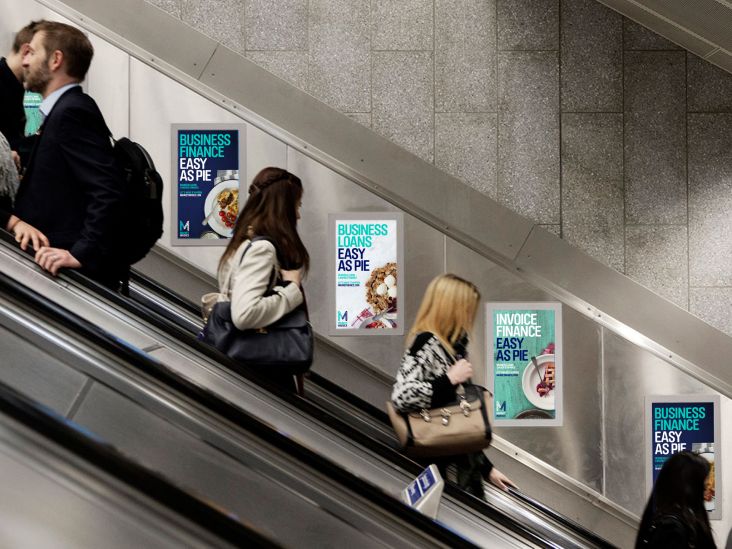What to tell a potential client if they're choosing between a freelancer or agency
As a freelancer, you know you have to sell yourself to win new business. Just like everyone else, you'll have your USP – the very thing that would encourage clients to pick you over other small businesses.

Image licensed via Adobe Stock
You might have a specific style that people want. You could have skills that are in short supply. Whatever it is, you've got a fighting chance.
But sometimes, a client will come along when you know they're facing the ultimate decision: should they choose you, the sole freelancer or perhaps go for a larger agency. The two options can mean very different things – both good and bad. In your case, you want to convince the client that you're the wiser choice.
We've put together the following reasons why your client could benefit from choosing you instead of a larger agency.
They'll pay a lot less and get better value
An agency might be bigger and have more resource, but that doesn't necessarily mean they're any better than a seasoned freelancer like yourself.
Your client might get better value for money with someone who has heaps of skills and experience and is more transparent. For instance, you can easily see where a freelancer has worked and what they're capable of. An agency might send in the senior directors to the meetings but then get the juniors to do all the work behind the scenes.
With a freelancer, all of your client's investment is paying for one person's time and expertise, and they're not going towards an agency owner's posh car, legions of staff and fancy office space.
They'll get a smoother, dedicated service
You'd think that an agency would deliver better service, but that's not always the case. Agencies are on treadmills, servicing lots of different accounts. They won't always be considering your client's needs or be available 24/7.
As a freelancer, you have more to lose and will want to do the best job possible. You'll answer the phone no matter what. You'll be there for them when they need you the most. You're loyal and reliable, which leads on to my next point.
They won't have to deal with different people each time
Agencies can be transient, as staff come and go. An account or project manager one week might be someone entirely different from the next. This can be frustrating, as clients may have to go through an onboarding process each time.
With you, the freelancer, you build a relationship with your client from day one. You learn what makes them tick and respond accordingly. Don't underestimate the value of a strong partnership – clients love to work with someone who understands them and their business as well as they do. And who remembers what was happening five years ago, nevermind last week.
They will only ever have to deal with one person
With an agency, your client might have to contact a project manager who can't answer their query until they've spoken to the designer or developer. This isn't ideal, as it will often slow things down.
A freelancer, on the other hand, is the only person they'll ever have to deal with. Seasoned and professional, often wearing many different hats, you can be the account manager, marketing professional and the designer, for example. You're the consultant, and you know what will and won't work for your client's business, having invested so much time and energy into it.
They'll get things delivered more quickly
A bigger team doesn't necessarily deliver a speedier service. Agencies can be weighed down by chains of command and politics, whereas a freelancer is lean and mean, able to make decisions quickly and move on to the next task with ease.
Freelancers are never alone anyway. They tend to become part of a client's internal team, adding value wherever possible. They're focused on a smaller number of projects and can dedicate more of their time and energy to each of their clients.
They won't be a small fish in a larger pond
If your client isn't a huge global brand with millions to spend on their marketing, then they might not be a priority with an agency. It means if they need something done quickly, they'll be put at the back of a queue where they could be waiting for some time.
With you, the freelancer, you can be available at the drop of a hat. You'll care more about keeping the client happy and treating them as the most important thing in the world. The client is your big fish, and you'll want to ensure they don't swim elsewhere.
They won't be charged silly money for tiny little extras
Two grand for a 10-minute job? Agencies have overheads. They also want to make a profit. It means they'll be in the business of making money. And your client might find that every little thing is going to set them back some serious wedge.
As a freelancer, yes – you'll also want to make money. But you can afford to throw in the odd freebie and, more importantly, not take the piss and charge extortionate prices for any extra piece of work. You understand that in business, it's not always about trying to squeeze every last bit of cash out of a client – it's about loyalty, trust and building relationships that last. After all, winning new clients is more challenging than retaining existing ones.

























